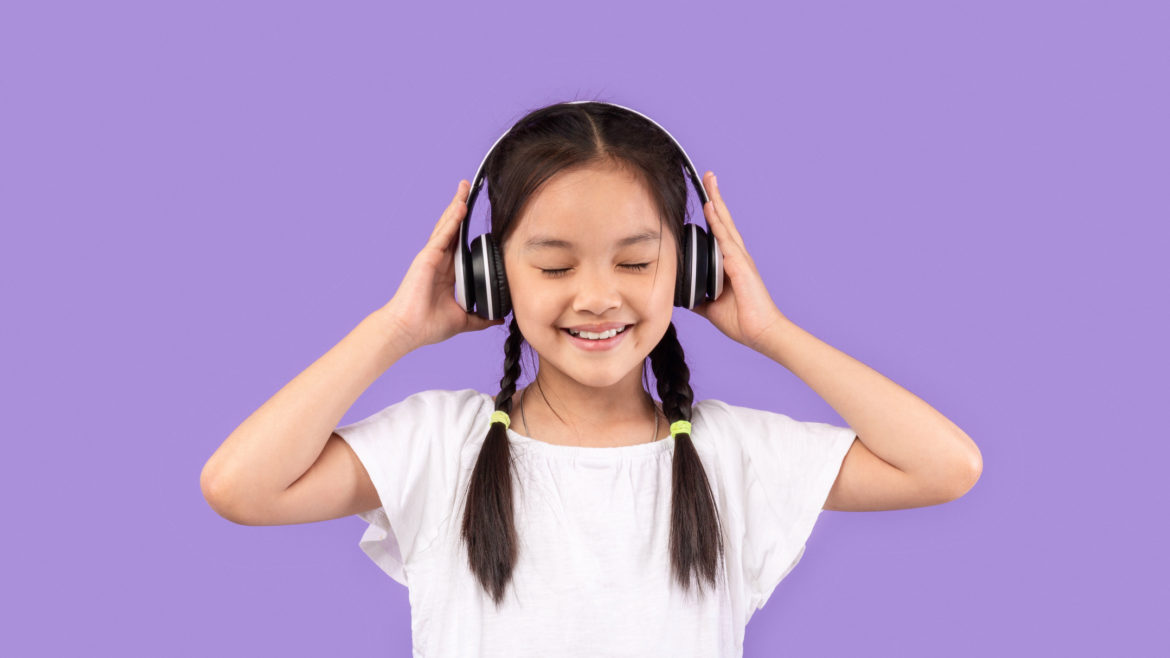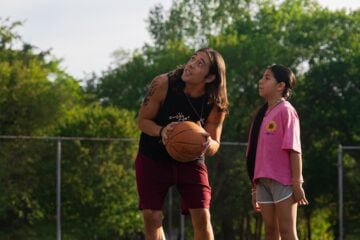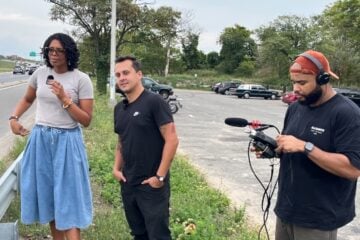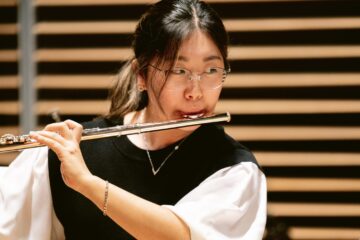How taking public radio’s journalism into classrooms can engage and educate students

Prostock-Studio / iStock
Public radio journalists inform listeners every day about national and world events. But a former public radio reporter discovered that such reporting can also have lasting educational value for students from elementary school to high school. In her book Listen Wise: Teach Students to Be Better Listeners, former WBUR reporter Monica Brady-Myerov explains how to put public radio journalism to use in the classroom to boost students’ listening skills. In this excerpt, she describes how she was inspired to leave public radio and launch the Listenwise platform.
Later in my career, I moved to Boston and joined the reporting staff of WBUR. My husband and I had two daughters. The oldest was a born reader. I don’t remember being a part of teaching her how to read. She seemed to have come home from school one day reading. My younger daughter struggled with reading. I didn’t immediately recognize it as a reading problem until her second grade teacher recommended she work with the school’s reading specialist. Her difficulties made her dislike reading. She would say she “hated reading.”
But she did love listening. She would listen to books we read out loud to her, devouring the stories. She would listen to NPR on the radio every morning with me and ask me questions about the news. Her understanding of complex topics impressed me. It was because of her reading challenges that I thought she and other kids would benefit from learning more by listening. This was my lightbulb moment. I decided to leave my reporting career and start Listenwise.
Listenwise is a digital platform devoted to building listening skills using audio stories. Our mission is to inspire individuals to fulfill their potential through the power of listening. Our collection of more than 2,500 podcasts is organized into current events and standards-aligned lessons for teachers of grades 2–12. Every audio story has a read-along transcript and other scaffolding for struggling readers and English learners. The teaching resources are standards-aligned, and it’s easy to assign a listening quiz or written assignment.
Much of the audio collection on Listenwise is free for teachers. And anyone can register for a free trial of Listenwise Premium, which includes scaffolding features and ready-to-go lessons.
It wasn’t an easy decision to leave reporting and become an entrepreneur. I had known from a young age that I wanted to be a radio reporter, and I was enjoying my work immensely. But I felt that my love of audio went beyond the stories I could personally tell. My connections in the world of public radio and podcasting put me in a position to make a greater impact. I realized my passion for audio could be spread further if I created a bigger platform on which to share audio for educational purposes.
I also believe that fact-based, balanced reporting has a role to play in our education system. In fact, it’s crucial to educate young citizens for our democracy to thrive. I thought it was a shame that every day, dozens of excellent stories about how government works, historical events, scientific discoveries, and human connections were heard once on the airwaves and then buried in the archives. But they held so much potential for educators and students — to build their knowledge and improve their listening skills.
One of the barriers that had to be overcome was sourcing stories that were short enough for use during a class period (~3–5 minutes in length), and that relate to the curriculum in grades 2–12. Anyone can search for Shakespeare on the NPR website, but you will be sorting through nearly 3,000 results. If you search for Shakespeare on Listenwise, you will find curated stories for the classroom that address, for example, the controversy over whether Shakespeare really wrote the works attributed to him and a story about the Juliet Club, which responds to letters written to Shakespeare’s fictitious Juliet. And you could introduce a unit on Hamlet by listening to a story about a touring company that performed the play in 197 countries. Listenwise is dedicated to curating high-quality audio stories that are especially well suited for educational use and developing instructional supports to accompany them.
For middle and high school students, listening to a news story from a public radio reporter is engaging. Students like listening to the same stories that adults hear because they are authentic. They aren’t what a team of education writers and producers thought an educational audio story should sound like. These are real stories with appeal to real audiences.
For elementary students, I turned to the excellent podcasts being created for kids to find the right educational content. On Listenwise, we focus on sourcing engaging stories that address English, social studies, and science topics. These podcasts are typically 15–30 minutes long, so our team edits them to a shorter length and focuses on key educational elements of the story.
It was through my work as a journalist that I came to understand and appreciate the importance of listening. My daughter showed me how essential listening skills are in learning to read. And my experience in building Listenwise into a thriving education technology company has taught me how good listening comprehension skills are critical to learning and how educationally valuable well-produced audio stories can be.





